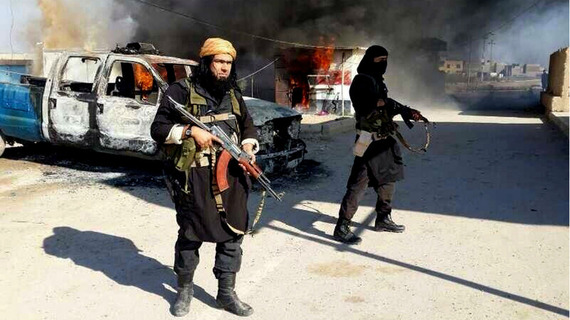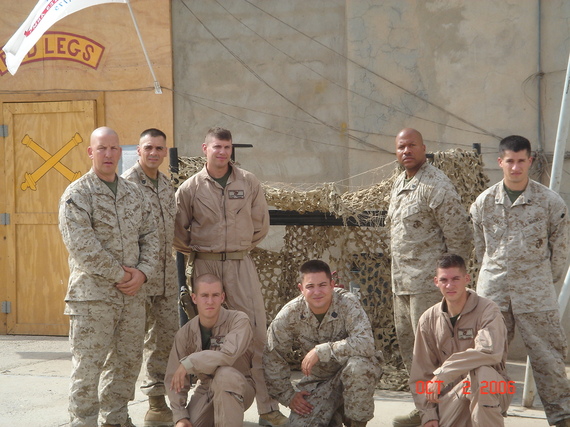At first blush Vice President Dick Cheney's recent op-ed reads like the script of a Saturday Night Live script, the kind where the character's statements are so absurd that they cannot help but make you laugh. Cheney wrote that, "Rarely has a U.S. president been so wrong about so much at the expense of so many," and although Cheney was obviously not a president, could he have been more wrong about some of his most fundamental beliefs leading up to the war in Iraq?
Even Fox News political commentator Megyn Kelly posed to Cheney:
But time and time again, history has proven that you got it wrong in Iraq as well, Sir. You said there was no doubt that Saddam Hussein had weapons of mass destruction. You said that we would be greeted as liberators. You said that the Iraq insurgency was in the last throes back in 2005. And you said that after our intervention, extremists would have to "rethink their strategy of jihad."
Incredibly, Cheney replied that, "We inherited a situation where there was no doubt in anybody's mind about the extent of Saddam's involvement in weapons of mass destruction." Except that a lot of people actually did doubt that Cheney "inherited" a situation mandating an attack on Iraq, the extent of Saddam's involvement in WMDs, and the techniques by which Cheney cherry-picked his intelligence.
Consistent with his age-old fear-mongering history, Cheney writes that:
According to a recent Rand study, between 2010 and 2013, there was a 58 percent increase in the number of Salafi-jihadist terror groups around the world. During that same period, the number of terrorists doubled.
Certainly that is a significant statistic, and one that reflects the gravity of the terrorist threat against our interests around the world. However, he forgot to mention that the U.S. invasion and occupation of Iraq itself increased the number of terrorist groups worldwide and made the overall terrorism problem worse, and that in 2007 terrorist attacks had increased 600 percent since we attacked Iraq.
Statistics can be tricky, and we need to view them in light of a much larger picture. The same is true when analyzing what is going on in Iraq right now, and instead of empty words that offer no real guidance, Cheney should show real courage and leadership by laying out his proposed strategy for engaging and defeating the multiple layers of threats that currently exist. Merely stating that defeating ISIS will require a strategy and sustained difficult military, intelligence and diplomatic efforts unfortunately does not provide any sort of answer or indication of a true understanding of the complexities swirling right now in the Middle East.
What is particularly concerning is that Prime Minister Maliki is now relying on the militias, which once carried out hundreds of attacks on U.S. soldiers. It is easy to say that the United States should conduct air strikes against ISIS, but do we want to be the air power behind an Iraqi government now aligned with Iran? General Petraeus recently said that, "This cannot be the United States being the air force of Shia militias."
As a Marine officer who bled on the battlefield in Iraq and lost a number of friends there, I understand our visceral reaction to attack these terrorist groups that are now claiming cities that we won years ago through our own fighting, commitment and sacrifice. But this is Iraq's war now, and our best option is to recognize that what is going on in Iraq is playing out across that whole region, and we have to choose our steps carefully. It is also critical to remember that Iraq is a sovereign nation that decided it did not want us there any more, and that our original mission there was to liberate, not occupy.
It is critical to our national security that we prevent extremists from creating safe havens to be then used for training and launching pads for further attacks. And ISIS is certainly an extremist group -- even al-Qaeda has disavowed them for their actions. They are spilling over from the failed state in Syria and taking advantage of the weak government in Iraq. At the same time, the Maliki government has continued to marginalize the Sunni and Kurdist groups in Iraq. The United States cannot sit this one out, and we should provide military assistance to Iraq in the form of equipment, intelligence, and training to defeat ISIS, but only if the Iraqis reform their government. We should also continue to lead international efforts to stop the violence in Syria and secure a negotiated political transition there, and provide non-lethal aid to the Syrian opposition figures that oppose the Assad regime and extremist Islamist groups.
Former Vice President Cheney and his daughter claim that the current problems in Iraq and surrounding areas would have been avoided only if President Obama negotiated "an agreement to leave behind some residual American forces, training and intelligence capabilities to help secure the peace." That's quite a strong statement -- is he just as sure of that as he was that our forces would be treated as liberators? And when he snipes that President Obama withdrew U.S. troops "with no leave-behind agreement," doesn't he remember that the previous administration signed the status of forces agreement detailing that all U.S. forces would be out of Iraq by December 31, 2011?
President Obama has claimed credit for ending the war in Iraq, and therefore he certainly has obligations to ensure our national security by appropriately shaping what happens in the Middle East. Sitting on the sidelines is not an option, especially when we have not yet reached a nuclear agreement with Iran, terrorist groups are growing in power and intensity, and our intelligence-gathering capabilities have been severely diminished since we brought home our combat troops. But it would be a huge mistake to rely on the broad and vague musings of a man with an eye-popping five military deferments under his belt, who once shot his friend in the face while hunting, and who obviously has a strict agenda now that he has launched his nonprofit organization. But it does make for good material on Saturday Night Live.


